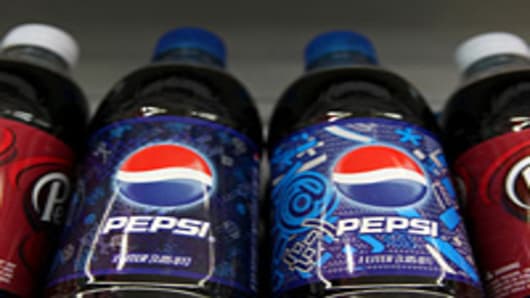The proposal by some state governments to tax carbonated soft drinks hurts the relationship between business and government, Indra Nooyi, CEO and chairman of Pepsico told CNBC Wednesday.
“This sort of arbitrary taxationon products is not a formula for long-term success, and it’s not a formula to keep business comfortable with the role of government in business,” said Nooyi, who took over the helm at the beverage giant four years ago.
Nooyi said there should be a dialogue on the purpose of such taxes—whether they are to tackle obesity or add revenue to government coffers.
“If it’s to address consumer behavior,” she said, “we have to find out what’s driving obesity levels, what’s causing people to consume too many calories. We need to address school lunches and [consider] calorie labeling on all the foods that are sold in restaurants and supermarkets.”
She added that, “If it’s to close the revenue gap in states, we ought to have a real dialogue between business and government as to how we can work together to improve the plight of economies at the national and state levels.”
Pepsico produces a number of the top global food brands, most of them snack foods, including Pepsi, Mountain Dew, Gatorade, Doritos and Fritos, and a “nutrition” line, that includes Tropicana juices, Quaker cereals and other products.
The $60 billion company garners 52 percent of its revenue from beverage sales and the rest from snacks and foods. Sixty-one percent of its sales come from the US and Canada and the remainder from other parts of the world. Nooyi said the emerging markets are a growing area and she named China as a “must-participate” market, where the company is building 13 plants.
Nooyi added that she plans to expand the company by driving the growth of all its 19 brands, instead of focusing on just one. “It the diversification of the portfolio,” added Nooyi, “that makes Pepsico such an attractive company.”
- Warren Buffett Prefers Coke Over Pepsi
- One Nation, Overweight


